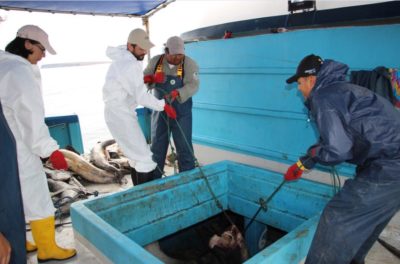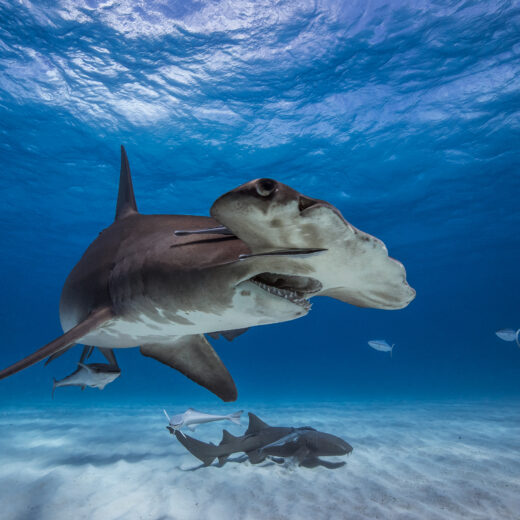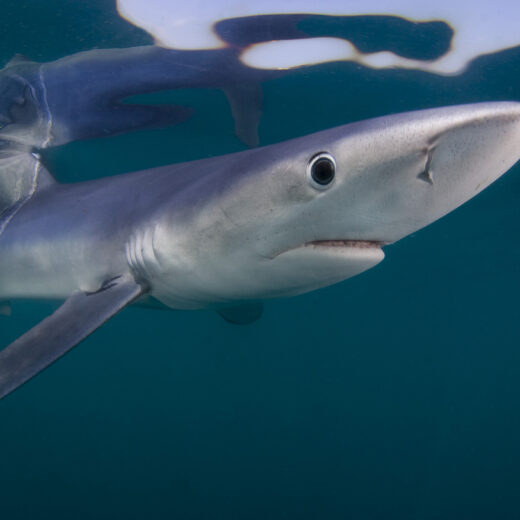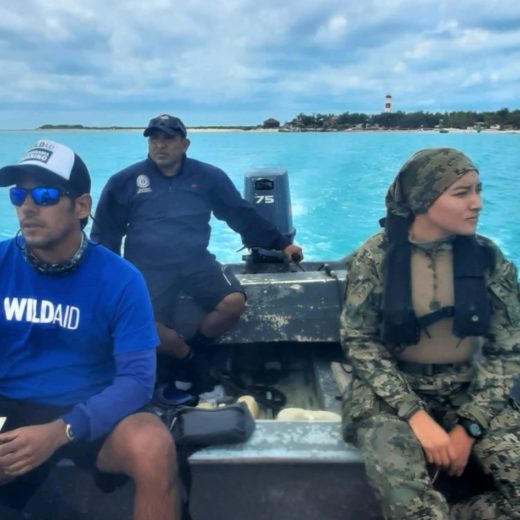
Yesterday Galapagos National Park announced the successful sentencing of the captain and crew of the Don Gerard V, an Ecuadorian fishing vessel caught illegally transporting sharks and other protected species in the Galapagos Marine Reserve in December. The captain and helmsman were sentenced to three years in prison and 16 crew members were sentenced to one and a half years in prison, while an additional five were declared innocent. The vessel was also tasked with a $307,813.60 fine for reparations to the environment, plus confiscation of the fishing vessel and its eight donor fiberglass vessels.
The Manta, Ecuador-based fishing vessel, Don Gerard V, was detected using the Galapagos National Park Service’s VMS system procured and installed by WildAid and Conservation International in 2009. The Galapagos National Park control center monitored its trajectory while the park’s patrol vessel and plane sped towards the fishing vessel, having been alerted to this suspicious activity. Galapagos Park Rangers and Ecuadorian Navy officials intercepted the vessel two miles within the reserve, near the island of Genovesa and arrested its crew of 23. Official inspection of the catch revealed 156 sharks (silky, blue, bigeye thresher, and smalltooth thresher) and 49 white fish in the ship’s cargo holds. The catch was destroyed after the official inventory on January 7.
Galapagos National Park Director, Walter Bustos, stated that “in the last six months, this is the second sentencing in favor of Galapagos National Park for the illegal transport and possession of protected species, which demonstrates a commitment to the rights of nature in this Natural Heritage and guarantees access to Galapagos’ artisanal fishers to the resources within the Galapagos Marine Reserve.”
An estimated 73 million sharks are killed each year for the illegal shark fin trade around the world. To stop illegal fishing and transport of protected species in the Galapagos, WildAid works with park rangers to monitor the vast reserve and prevent illegal fishing. Last year, Ecuador announced that all its vessels, no matter their size, will be monitored in real time. Previous legislation mandated hourly monitoring only for larger vessels, leaving small vessels to operate without oversight. Together, WWF, Sea Shepherd and WildAid procured and installed AIS transceivers and software to complement the existing VMS satellite technology system in the park’s control center to track all fishing and tourism vessels. In August, the Galapagos National Park rangers and Ecuadorian Navy apprehended a Chinese cargo vessel with over 6,000 sharks in its hold, which was sentenced in December for illegal transport and possession of protected species. This apprehension marks the second arrest since the installation of AIS this year and the third since the announcement last year of a marine sanctuary at Darwin and Wolf to protect sharks.
WildAid has used its comprehensive marine protection model developed with the Galapagos National Park to decrease illegal fishing and protect nearly 3,000 marine species in the Galapagos Marine Reserve since 2002 thanks to the support of the Helmsley Charitable Trust, Angermeyer Cruises, Conservation International, IGTOA, the Walton Family Foundation and WWF.
Stay in touch and get the latest WildAid updates.
SIGN UPAbout WildAid
WildAid is a non-profit organization with a mission to protect wildlife from illegal trade and other imminent threats. While most wildlife conservation groups focus on protecting animals from poaching, WildAid primarily works to reduce global consumption of wildlife products such as elephant ivory, rhino horn and shark fin soup. With an unrivaled portfolio of celebrity ambassadors and a global network of media partners, WildAid leverages more than $308 million in annual pro-bono media support with a simple message: When the Buying Stops, the Killing Can Too.
Journalists on deadline may email communications@wildaid.org


